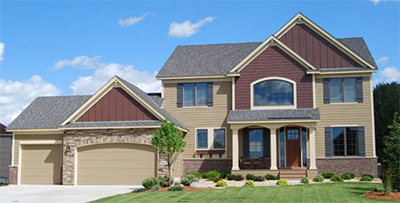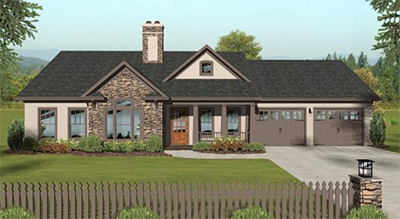The size of your home has far-reaching implications for your finances, so it’s important to figure out what your space requirements actually are. You don’t want to accidentally get too much or too little and wind up over your head or totally uncomfortable. A house is a serious investment that you want to get right the first time, so here is what you should know to help decide how much square footage you actually should buy.
Think in Comparison
Do you already have a house or apartment and have opinions about it? You must, if you want to move! Go around and think about how different rooms feel—are they too tight or are you swimming in unused space?—and then get out a tape measure to see how your opinions translate into numbers. The average person is a poor judge of dimensions, so this is a great way to get an idea of what blueprints will become.
Of course, you can also use the houses of friends and family for this to widen your information pool and come to a more definite conclusion. Just be sure that you are realistic about your own interior design habits, because you can over- or underestimate your space needs based on the whole picture somebody else has put together. For example, if you absolutely love the feel of a simple bedroom that includes just a bed, nightstand, and dresser, but you expect to also fit a desk and bookcases into your own bedroom, it doesn’t do you much good to think that the size of your model is perfect for you.
Be sure to measure bedrooms, kitchens, bathrooms, and everything else so you have numbers for an entire house. Add them up to get a general idea for your ideal size home. Search for blueprints around that size with your requirements and you’ll probably find quite a few with room dimensions close to the numbers you collected!

Beware the Bigger House
The average new home has doubled in size over the last fifty years, even though families are getting smaller. We like to spread out and enjoy space, but you should have a plan for all of it and be realistic about your budget. Why would you want to spend money on more than you will use, or end up with bills that are more than you can afford?
That’s not to say that large homes are necessarily bad. There are plenty of reasons that people opt for more square footage, like needing a home office or a really great kitchen for entertaining, but if you choose to go big without a good reason and without thinking it through, you will probably encounter problems. Supersized McMansions become the bane of their owners more often than you know.
Issues that come up with oversized houses include:
You should be absolutely certain that you can afford your decision to go big so you aren’t blindsided by the harsh reality after the fact. It’s not automatically a good choice even if a bank gives you a mortgage for it, and you need to be honest with yourself first and foremost.

Be Realistic About the Smaller House
A lot of people are going in the other direction nowadays, by downsizing and slashing their material possessions. Smaller houses can be great for anybody who travels a lot, prefers to go out rather than entertain at home, and doesn’t want to invest a lot of time and money in cleaning and maintenance. Of course, they’re also attractive for their affordability, but that doesn’t mean they’re for everybody.
Here are some problems that can come with undersized houses:
Don’t get so overzealous about downscaling that you get stuck with a house that doesn’t fit with your lifestyle. While reducing financial obligations and superfluous belongings can be liberating, it comes at the expense of flexibility and potentially comfort. That said, there is a huge difference between a truly tiny dwelling and a modest 1,500 square foot home that has three bedrooms and a flowing layout.
The Takeaway
There is no one-size-fits-all solution for houses. What works for one family might be completely unsuitable for another, and you should focus on your own needs rather than get caught up in a trend that doesn’t do anything for you. This is much more likely to make you happy in the long run.
The perfect amount of square footage will also vary over the years, and you should plan for the future. Is this a home you intend to own for the rest of your life, or do you think you’ll want to sell it and move on as your needs change? It’s easier to settle on a house if you know it isn’t going to be permanent, but if this is going to be the last home you ever buy, it can be easy to focus too much on one set of requirements and then spend years living uncomfortably. Find a happy medium that you can afford—you’ll be better off!